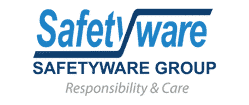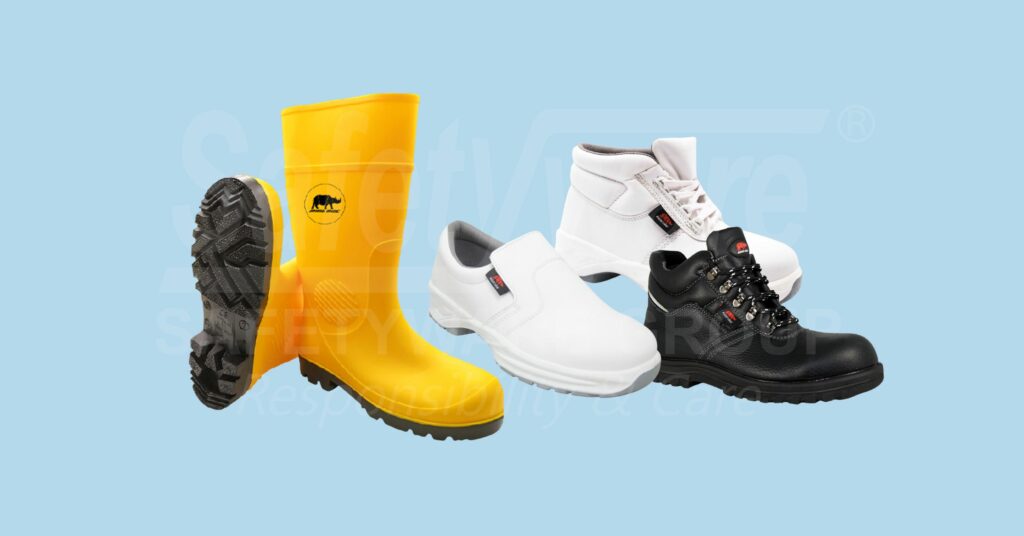Different industries have different sets of regulations for maintaining the safety and cleanliness of production lines. In the food industry, contaminations or spoilage of any processed products are unacceptable.
The commonly found contaminations in the food industry include parasites, bacteria, dust, mold, and other human-related debris which will then cause severe illnesses such as salmonella, E. coli, and Hepatitis A. Therefore, personal protective equipment (PPE) for the workers is essential to make sure the health and safety of the workers involved in the food handling and processing are well taken care of.
Some of the commonly used personal protective equipment (PPE) in the food industry include:
1) Mob Cap
A mob cap is worn in the production place to prevent hair from falling during food processing. Made from 100 % non-woven material, Safetyware’s self-manufactured mob cap comes with soft texture and good ventilation features to offer comfortable wearing even for long hours. Other than the food industry, they are usually found in cleanrooms and laboratories as well.
2) Goggles and Safety Glasses
Some of the food production areas form particles or debris that could easily go into the eyes and affect vision when not treated in long term. It is recommended to use goggles or safety eyewear to provide a shield and reduce the hazards from any flying debris or objects during production. Workers that wear glasses can opt-in for prescription safety glasses or an over glass to wear them over the existing glasses.
3) Ear Plugs
Machines in food industries can be loud and constant and it will cause hearing problems in the long run when no ear protection is prepared. Earplugs are commonly used to cut down noise exposure at levels exceeding 87 dB. As earplugs fit directly into the ear canal, it offers greater protection. Moreover, it is lightweight and comes in bright colours for good visibility. Users may choose either those with or without a cord for easy tracking.
It is recommended to use metal-detectable earplugs in the food industry for easy identification of contamination in case any earplugs dropped into the production line. Safetyware’s earplugs are certified and approved by SIRIM-DOSH to offer the highest protection.
4) Face Mask
Most food manufacturing and processing company requires workers to wear a disposable face mask as a protective barrier to prevent any droplets, saliva, or any splatter from the mouth and nose if any coughing or sneezing happens. The face mask would prevent contamination of the products as well as provide basic respiratory protection to the wearer in case the production line produces any contaminants in the air.
Some food manufacturing processes that generate hazardous contaminants need a higher range of respiratory protection like Safetyware’s self-manufactured FFP2 respirators certified with MDA or Sundstrom’s powered air-purifying respirators (PAPRs).
5) Aprons
Apron comes in several types like simple PE disposables, heavy-duty PVC, or even reusable fabric. Depending on the work tasks, the density of the liquid splashes, and the types of dirt or splashes (chemical or non-chemical), employers need to prepare suitable aprons for production use.
6) Gloves
Working in food processing and handling without gloves would lead to injuries other than general contaminations. Handling food with bare hands can contribute to foodborne illness as well as cause cuts or skin injuries due to the use of sharp tools and objects.
CE and food-safe compliance disposable gloves like powder-free nitrile, latex, and PE gloves are generally used to prevent any cross contaminations and direct contact of the hands with the food. With excellent sensitivity and durability features, nitrile gloves are commonly used for those who prefer the close fit when used to handle food processing. PE gloves are ideal for situations when frequent changes are required such as making sandwiches or short-term use as they are thinner and more lightweight.
Other than disposable gloves, some food industry requires gloves like cut resistance or impact gloves to prevent cut or impact kind of injuries, especially when working in the process of cutting meat, slicing vegetables, ice carving, moving machinery or even washing sharp tools.
7) Safety Footwear
Identifying the hazards at the workplace such as wet surfaces, slipping, cuts and punctures, chemical splashes, abrasion, and sharp objects would determine the type of safety footwear needed in the food industry.
Workers with a different types of work tasks need different types of safety shoes. Let’s say, if the worker works in a wet environment, he will be needing wellington boots, or so-called waterproof boots that are anti-slip and oil resistant to prevent any slips or fall accidents from the wet and slippery floors. For instance, RHINO SHOE’s wellington boots are made with or without steel toe caps and steel plates and are used depending on the tasks and work environment. Those with steel toe caps and plates offer protection from any sharp tools piercing the feet whereas the ones without safety features are used to cover any wet conditions.
Workers in the kitchen or production house working with sharp or heavy tools needs proper foot protection with anti-penetration, oil resistance, heat resistance, and even anti-slip features.
Other than looking at the features of the safety footwear, it is also important to check out the certifications and standards like CE and SIRIM-DOSH for qualified safety requirements.
To prevent accidents at work, regular monitoring of the hazards needs to be done to prepare proper and suitable personal protective equipment for the workforce. With Safetyware, you can save a piece of mind by the offering of more than 3,000 types of self-manufactured and imported products with certifications to CE, ANSI, AS/NZS, SIRIM, Singapore Standard, etc.
Talk to our friendly team for advice and quotation: https://safetyware.com/contact-us/
Click to explore more Safety Products







